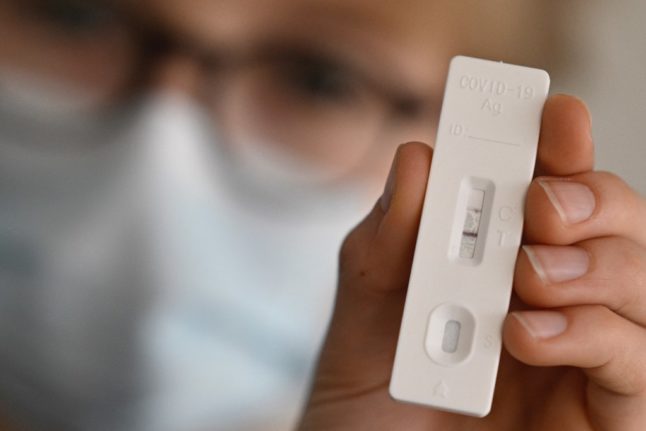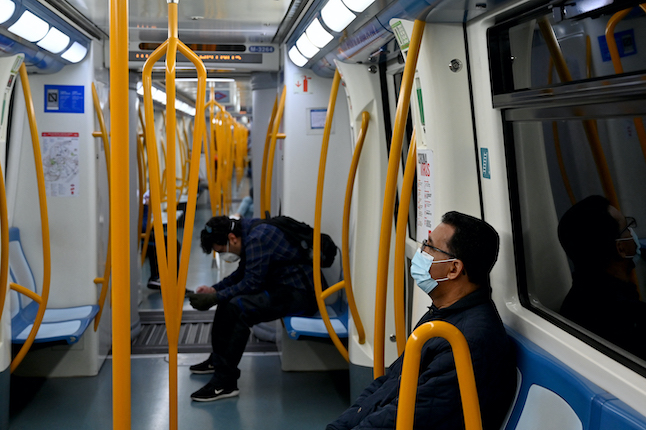In theory, the Austrian Health Ministry’s instructions for dealing with a possible Covid-19 infection are quite simple: stay at home, reduce contacts, wear an FFP2 mask if necessary, and call the health hotline 1450.
Then, an infection would be confirmed via a test sent by the health hotline or, according to the ministry, after using a test in one of the so-called Teststraße, specific locations dedicated to offering the free Covid-19 tests, either via a swab in the nose or mouth.
READ ALSO: Everything that changes in Austria in May 2023
However, in practice, implementing these guidelines is proving to be difficult in Austria. At the end of April, all test lanes and gargle boxes were discontinued, which has made it challenging for individuals to get tested for Covid-19. When calling the health hotline, many employees say they are overloaded and have no more testing capacity, according to Austrian media reports.
Even in pharmacies, the stocks of antigen or PCR tests are going down every day. The offer for five free antigen tests per person per month was extended until June 30th, but supplies have been low for weeks, according to Austrian pharmacists.
The demand for testing is high, given the current infection numbers. On average, around 650 new infections are reported every day, with the number of unreported cases increasing from day to day, as shown by a comparison with the figures from wastewater monitoring, Der Standard reported.
READ ALSO: Reader question: Do I still have to wear a face mask due to Covid-19 rules in Austria?
How can I get tested in Austria?
Despite the difficulties, every month, in addition to the five rapid antigen tests – if you can get hold of them at a pharmacy – each person is also entitled to five free PCR tests. However, how to get them varies from state to state in Austria.
In Vienna, as part of the “Everyone gargles!” campaign, Viennese citizens can pick up five gargle tests at all Bipa stores. The sample can then be returned to one of the collection points (including Rewe stores, gas stations, and participating pharmacies).
The free PCR tests can also be done in pharmacies all over Austria, which seems to work well. Viennese people can split the five free PCR tests, taking about two tests in pharmacies and doing three “Alles gurgelt!” tests, for example.
READ ALSO: Austria to drop all Covid restrictions by the end of June
To simplify the process of getting tested for Covid-19, registering for a PCR test at the pharmacy at oesterreich-testet.at can help shorten and streamline the process.
However, many testing sites also offer testing without pre-registration.



 Please whitelist us to continue reading.
Please whitelist us to continue reading.
Member comments